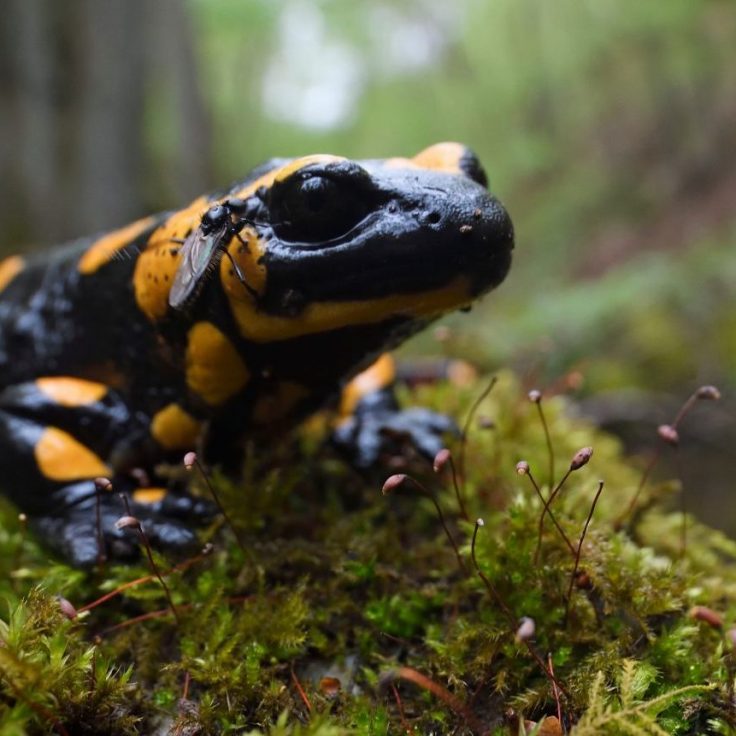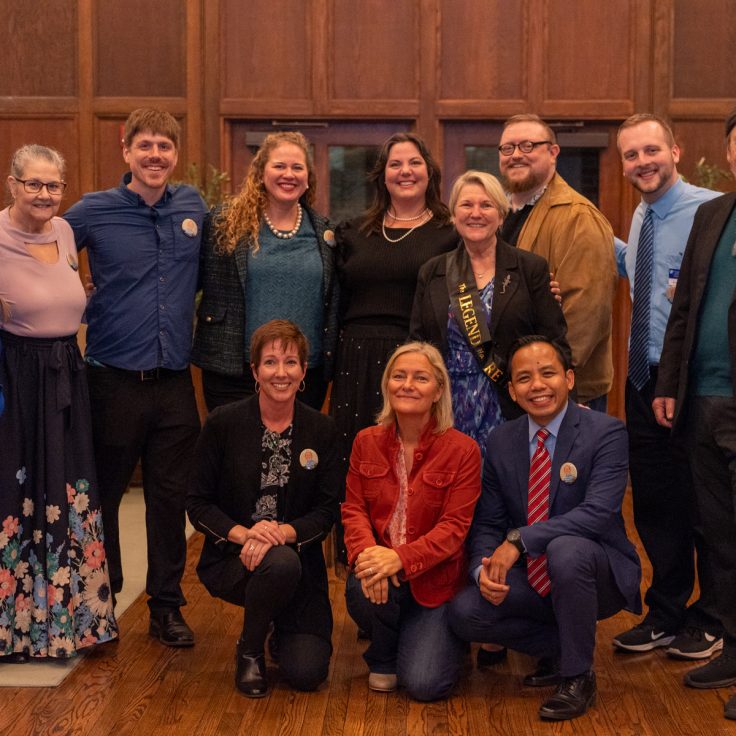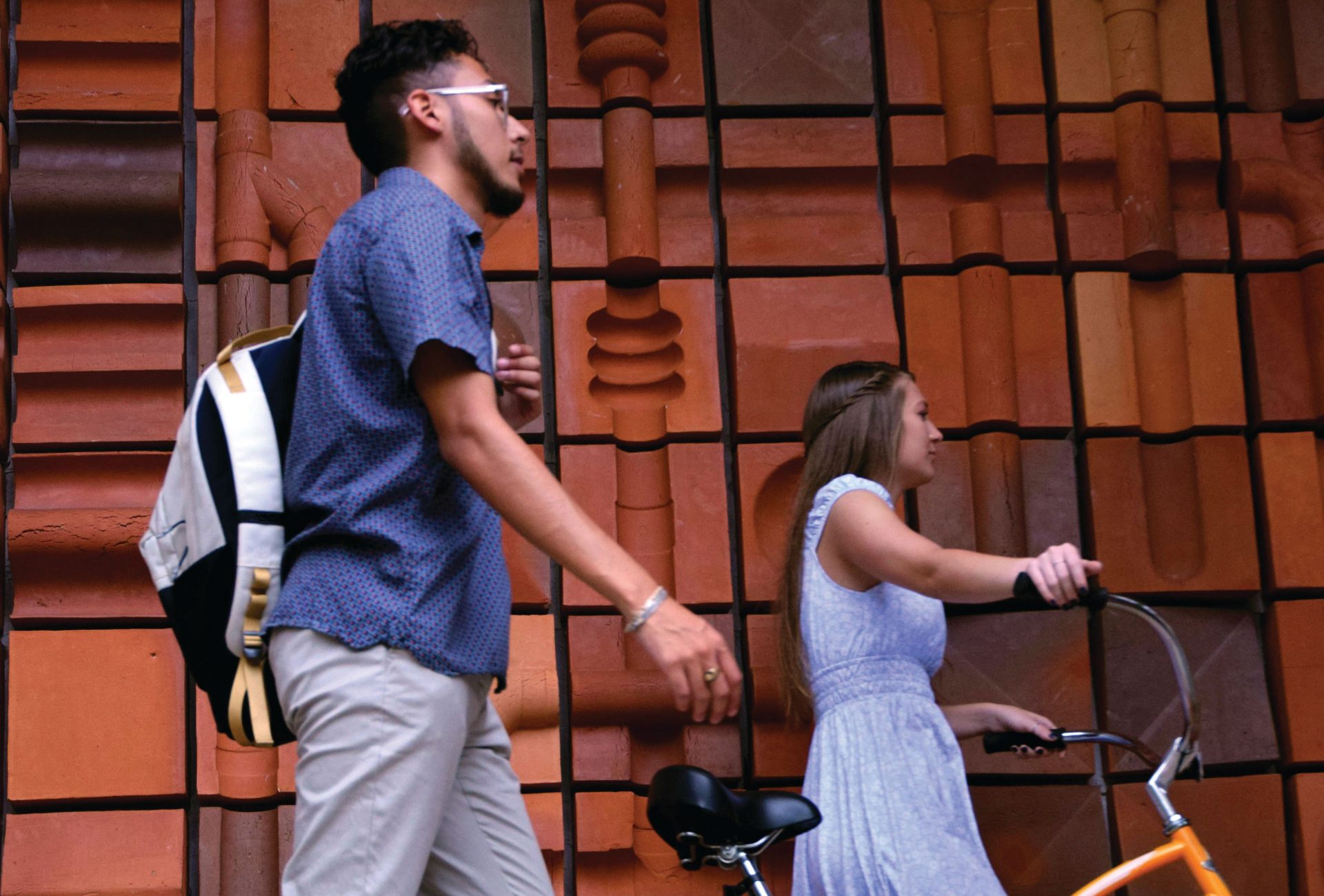
The Second First Year is the Hardest
For transfer students, a fresh start is worth the fish-out-of-water feeling
If you ask biology major Gretchen Overton what it’s like to transfer to a new school, she doesn’t mince words.
“Transferring colleges is hard,” said Overton, who came to the University of Florida in 2020 after receiving an associate degree from Broward College.“You are basically a freshman all over again — except you aren’t in freshman-level classes where everyone else is also experiencing the newness.”
The disorienting feeling is all too familiar to a sizeable chunk of students in the College of Liberal Arts and Sciences: About 20 percent of current undergraduates transferred here, and they encounter distinctive new challenges and opportunities alike.
As they acclimate to the new environment on campus, the college’s Academic Advising Center is available throughout the experience to minimize the transfer “shock” by providing guidance and support. Adding to the university-wide Transfer Preview, the center offers programming designed specifically for these students, including an online course to prepare them for their arrival and specialized social events once they get to campus. The academic advisors and support staff are trained to empower transfer students who are struggling in their transition and are a dedicated go-to resource, in addition to faculty.
Transfer students can also join the UF chapter of Tau Sigma, a national honor society exclusively for transfer students. Members not only find a support network of fellow students going through similar experiences — they also have the chance to receive scholarships, take part in social events and volunteer opportunities, and attend the society’s annual conference.
Though transfer students share the experience of adjusting to a new campus in the midst of their college career, their individual journeys reflect the wealth of experiences that arise out of their resiliency. Two current students and two recent alumni of the College of Liberal Arts and Sciences shared how they carved out their paths after transferring to the university. Their stories demonstrate that you don’t have to attend one school for four years to make a lasting impression.
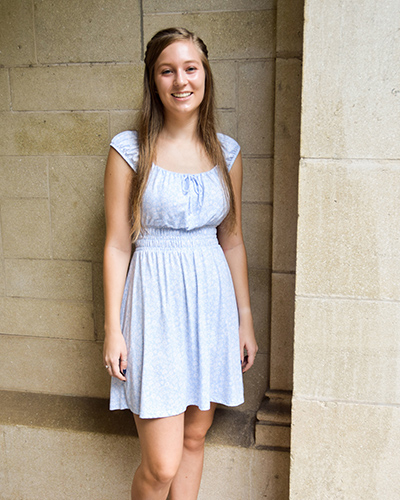
Gretchen Overton had barely set foot on her new campus when the pandemic hit. More than a year after her spring 2020 arrival, she’s now in the midst of her first full, in-person semester — and, as she prepares for her December graduation, her very last.
The preprofessional biology major has taken the unconventional situation in stride: She not only dedicated herself to fulfilling medical school entry requirements as she pursues her dream of becoming a physician, but she is also the current president of Tau Sigma.
What makes Tau Sigma so valuable for transfer students?
It gives them the opportunity to meet people who are going through the exact same experiences. I remember sitting in my upper-level genetics course trying to figure out how to access notes on Canvas, while everyone around me already had theirs set up. It was embarrassing, but those are some of the things transfer students might experience that the traditional student wouldn’t think about. Being able to commiserate with a group of people is very important!
What surprised you about transferring to UF and CLAS?
I was shocked to find out that as a biology major, I was required by CLAS to take 10 credits of a foreign language. I decided to pick a language related to my ancestry that I knew absolutely nothing about: Russian. I learned so much of the language in such a short amount of time, but I think the reason it’s a CLAS requirement has more to do with transferable skills: self-confidence, hard work and dedication. Not only can I now speak, write and read Russian, but I also had to learn how to be fearless enough to talk in front of my class while sounding ridiculous.
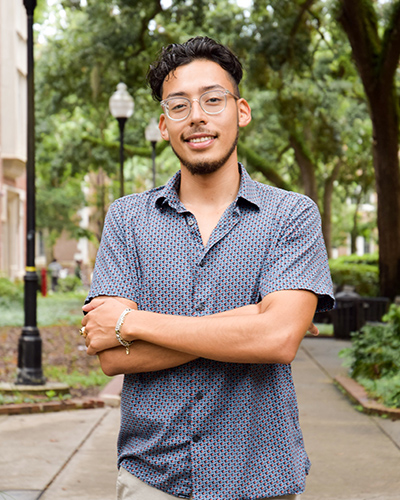
David Ruiz Menjivar had long felt drawn to African studies, but it wasn’t until he arrived at UF that he discovered how that interest could become a hands-on, immersive experience — and a career path.
After receiving his associate degree in history from Santa Fe College, he came to UF in Spring 2019 and discovered the Archaeological Field Schools offered by the Department of Anthropology. A year later, he was flying to Ethiopia to conduct on-the-ground research. His dual history and anthropology majors and African studies minor are empowering him to pursue a PhD in East African archaeology.
How have your experiences with Archeological Field Schools at UF been valuable to you?
Prior to my first field school I had not made up my mind about archaeology as a possible career, but my field experience created a strong foundation and passion. I was fortunate to be able to present an independent research poster from my work with a conference in the fall of 2019, which inspired me to look for more opportunities at UF. I got very lucky to find the “UF in Ethiopia” field school with Steven Brandt, associate professor of anthropology. The experience of working and traveling in Ethiopia reassured me that this is something I want to do for my career.
Do you have any advice for incoming transfer students?
My biggest advice for incoming transfer students is to talk to your professors — they are people too. When I first came to UF I found myself intimidated and overwhelmed, but building a rapport with my professors helped me process the stress of class, find mentors, and gain letters of recommendation down the road. It was also a good way to find research opportunities and topics of interest.
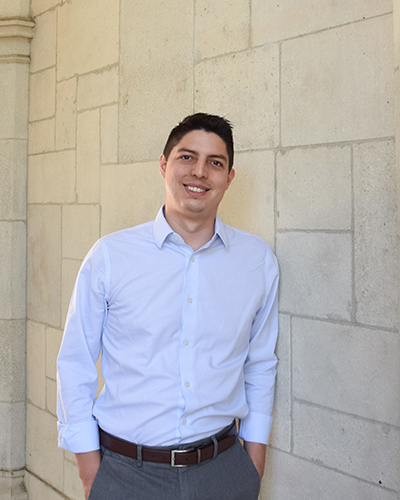
Pablo Santana knew that he wanted a career with meaning and purpose. By the time he transferred to UF in spring 2018, the first-generation college student was determined to enter the medical field so he could dedicate himself to serving others in their most vulnerable times. He sought out research opportunities as an undergrad biology major and was able to study innovative treatments for spinal cord injuries at the McKnight Brain Institute. “At UF, I was always challenged and pushed to be more insightful, knowledgeable and efficient,” he said. “These skills have proven to be instrumental in the competitive field of medical education.” Santana started at the UF College of Medicine in Fall 2020 and plans to pursue a residency spot in general surgery.
What helped you acclimate after you transferred?
Engaging in classes outside my major allowed me to stay grounded and engaged in my passions beyond my science and career goals. Among the most fulfilling were my classes in philosophy. Staying true to all my interests was fundamental to having a mentally stimulating experience and substantial personal growth.
Did anything about transferring to UF and CLAS surprise you?
I was surprised about how welcoming UF was and how quickly everyone made me feel part of the community. After attending for two years, I already felt I was a Gator for life! This connection with the institution was so meaningful that I decided to stay here for my medical education.
Do you have any advice for incoming transfer students?
It is common for transfer students to have experiences outside of academics like social obstacles they had to overcome to get to a school like UF. Even though we may initially think that these obstacles are a hindrance to our career aspirations, I have come to learn that the lessons from these experiences are one of our biggest strengths.
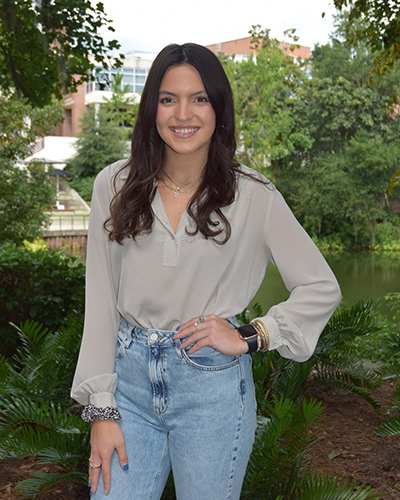
Alice Bronson prides herself on her social skills, and she found no shortage of opportunities to make the most of them at UF after she transferred from the University of Tennessee at Knoxville in Fall 2018. Along with Greek Life, the Florida Bright Futures Scholarship recipient met new people at UF by playing a variety of intramural sports: volleyball, basketball, softball, spikeball, flag football and soccer. As she worked through her history and political science majors, she also found time to give back to the college as a member of CLAS Ambassadors and the CLAS Professional Development Committee. All the while, she kept her eyes on her goal of law school: Bronson started at UF’s Levin College of Law this fall.
Was there anything about transferring to UF and CLAS that surprised you?
One thing that really surprised me was just how highly motivated the student body was. I was surrounded by high-achieving, ambitious and smart individuals which motivated me to work harder in my classes.
How do you expect your Liberal Arts and Sciences education will be valuable in law school and your future career?
Studying the law in both my political science and history classes further fueled my desire to wholeheartedly pursue a legal career. My majors also really developed my writing and research abilities. Together, they sharpened my ability to synthesize readings and produce concise yet in-depth writing. I have developed the ability to understand causes and effects and give analysis.
Do you have any advice for incoming transfer students?
My advice would simply be to get involved. The people, staff and experiences are what really make your college experience that much more beneficial. It may not come as easy to you because lots of recruitment things are geared to freshmen, but you have to put yourself out there.
This story appears in the fall 2021 issue of Ytori magazine. Read more stories from the issue.
